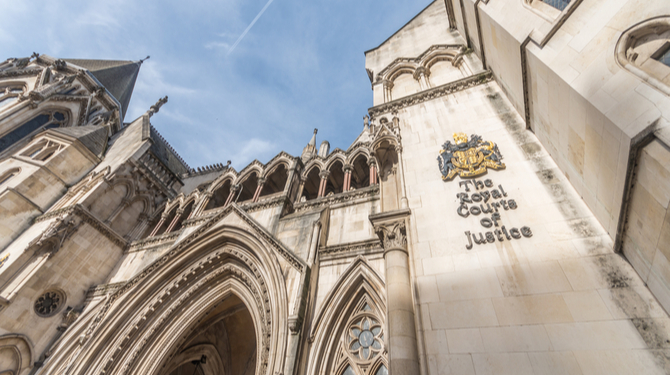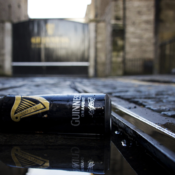
22 September 2020
The recent COVID -19 High Court ruling
The recent COVID -19 High Court ruling
This provides some clarity for customers' business interruption claims caused by COVID-19 pandemic.
The Background
Following interruption to businesses due to the pandemic, insurers were showing inconsistency in dealing with claims. Many business interruption covers only provided property damage cover. However, some policies had infectious disease extensions or non-damage denial of access. It was these extensions that were having unclear results.
The FCA (Financial Conduct Authority) decided to bring a test case to clarify key issues of contractual uncertainty for as many policyholders and insurers as possible. The FCA did this by selecting a representative sample of policy wordings issued by eight insurers. The FCA’s role was to put forward policyholders’ arguments to their best advantage in the public interest. 370,000 policyholders were identified as holding policies that may be affected by the outcome of the test case.
Visit our dedicated COVID hub
The judgment
The judgment is complex, runs to over 150 pages and deals with many issues. In order to establish liability under the representative sample of policy wordings, the FCA argued for policyholders that the ‘disease’ and/or ‘denial of access’ clauses in the representative sample of policy wordings provide cover in the circumstances of the Covid-19 pandemic, and that the trigger for cover caused policyholders’ losses.
The judgment says that most, but not all, of the disease clauses in the sample provide cover. It also says that certain denial of access clauses in the sample provide cover, but this depends on the detailed wording of the clause and how the business was affected by the Government response to the pandemic, including for example whether the business was subject to a mandatory closure order and whether the business was ordered to close completely.
The test case has also clarified that the Covid-19 pandemic and the Government and public response were a single cause of the covered loss, which is a key requirement for claims to be paid even if the policy provides cover.
How is COVID affecting Cyber risks? Download our white paper today
What it means for policyholders
The judgment did not say that the eight defendant insurers are liable across all of the 21 different types of policy wording in the representative sample considered by the Court. Each policy needs to be considered against the detailed judgment to work out what it means for that policy. Policyholders with affected claims can expect to hear from their insurer shortly.
The test case has removed the need for policyholders to resolve a number of the key issues individually with their insurers. It enabled them to benefit from the expert legal team assembled by the FCA, providing a comparatively quick and cost-effective solution to the legal uncertainty in the business interruption insurance market.
The test case was not intended to encompass all possible disputes, but to resolve some key contractual uncertainties and ‘causation’ issues to provide clarity for policyholders and insurers. The judgment does not determine how much is payable under individual policies, but will provide much of the basis for doing so.
It is helpful and will speed up claims, but there are two big issues outstanding.
The first is that insurers will only start paying claims on certain policies. The FCA only considered two sub-aspects of business interruption: disease and prevention of access. A very large number of policies will fall outside that scope.
Secondly, even when an insurer agrees to pay the claim, there will be questions over the quantum. It is a grey area that has potential for conflict. In part, this is because of how varied the scope of BI policy wordings are, meaning that a blanket judgment was in no way possible.
Insurers are now going to have to analyse all the types of policies held by the type of insured and check against the advice and the regulations as to what had to close, when, and was it a mandatory closure? If it was a mandatory closure, I would say that’s when the policy kicks in, but if it was just advice, which I don’t think it was, then perhaps they can still say you could have traded.
If a restaurant only offered sit-down meals, then clearly it’s ceasing to trade. But if the restaurant offered takeaways they can carry on. It is then a case of what the balance is of the business interruption. If half your business is takeaway, then theoretically you’ve only lost half the business because only the sit-down half of the business is not able to operate.
It is likely that the judgment will be appealed. Any appeal does not preclude policyholders seeking to settle their claims with their insurer before the outcome of any appeal is known.
Ascend Broking Group News
The next steps
The Court has, in effect, said to insurers, you need to re-analyse your wordings. They have given some clarity on what is expected. There’s likely to be even further analysis as to how this judgment fits particular wordings. Insurers are now going to have to analyse all the types of policies held by the type of insured and check against the advice and the regulations as to what had to close, when, and was it a mandatory closure?
Insurers are considering the judgment and what it might mean in respect of any appeal. Any applications to appeal will be heard at a consequential hearing before the High Court.
It is important that there is a solution so that customers can be protected in the event of another pandemic. Already the UK have been looking at a model called Pandemic Re and many other nations are also considering these types of shared risk models.
Pool Re, which is the UK’s answer to terrorism risk, provides a working example of how such a partnership could work in practice.
Have any questions? please don’t hesitate to contact one of our team
Simon.horton@ascendbrokingold.co.uk | Office: 01245 449068 | Mobile: 07841 020435
Recent Posts
Ascend Broking
How AI is Revolutionising Fleet Safety
Ascend Broking
The Risks of Leaving Tools in Vehicles Overnight
Ascend Broking






